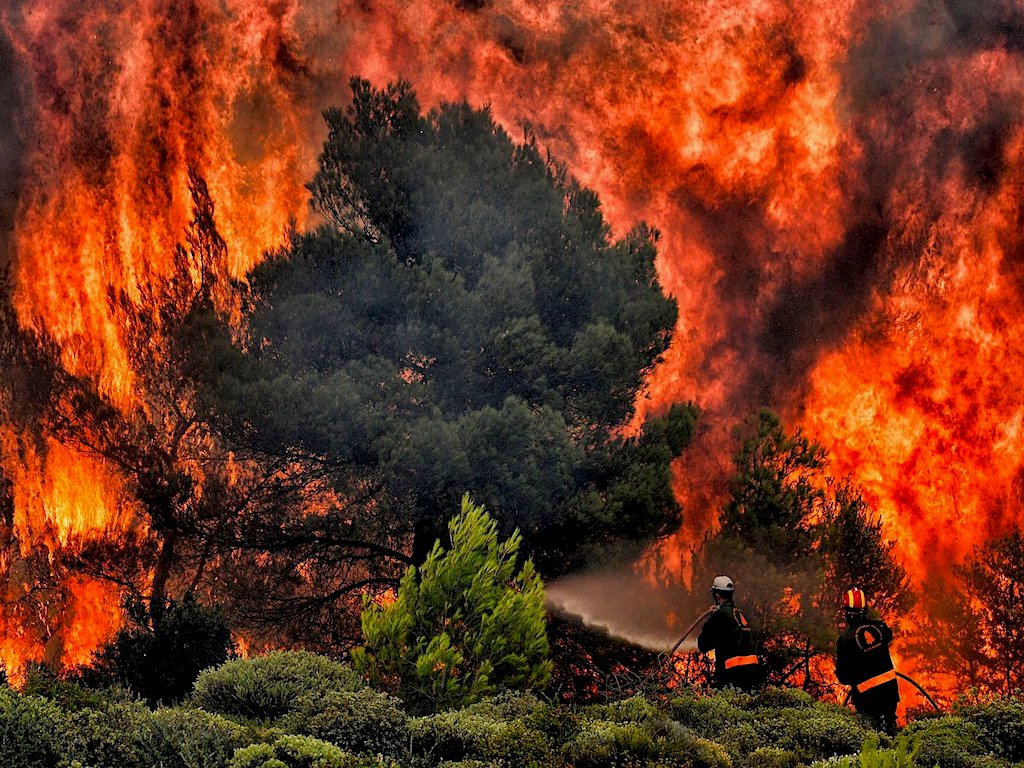3 Mins Read
For the first time, the climate crisis is at the top of the World Economic Forum’s annual risk report ahead of the Davos conference. All five spaces in the list of issues likely to pose a major impact over the next decade have been filled by environmental issues, as the world wakes up to extreme weather events and mountains of scientific evidence on global heating and climate change. The report is a sobering reminder of the severity of our planetary crisis, and is a call to action for world governments, global corporations and individuals to take urgent measures if we are to avoid more climate catastrophes in the near future.
For the first time in its 15-year history, the World Economic Forum’s (WEF) annual risks report saw environmental issues fill the top five spaces in the index of issues that will majorly impact the world over the next decade. The top five concerns listed in the report, which all centre around our climate emergency, include damage from extreme weather events, failure of climate mitigation and adaptation measures, human-caused environmental disasters such as oil spills, mass biodiversity loss resulting in resource depletion, and major natural disasters. The list was drawn up through a survey of over 750 of the world’s elite decision makers, and comes ahead of the Davos conference next week, which will be attended by chief executives of the world’s most powerful companies.
Børge Brende, the president of the WEF, pointed out that the report follows a decade of record-breaking temperatures, melting ice caps and the current wildfire catastrophe in Australia, and called on world leaders to come together to combat the crisis. “The political landscape is polarised, sea levels are rising and climate fires are burning. This is the year when world leaders must work with all sectors of society to repair and reinvigorate our systems of cooperation, not just for short-term benefit but for tackling our deep-rooted risks,” he said.
Read: Why CEOs are now pricing in climate change
In addition to highlighting risks from ecological crises, the WEF report adds that the world governments have retreated from the multilateral approach that was employed during the 2008 financial crisis. This regression will make it more challenging to fight global issues with the necessary urgency, so businesses, therefore, must take a leading position to combat climate emergencies and show their ability to cope with the worst and potentially irreversible consequences of climate change.
“There is mounting pressure on companies from investors, regulators, customers and employees to demonstrate their resilience to rising climate volatility…High-profile events, like recent bushfires in Australia and California, are adding pressure on companies to take action on climate risk at a time when they also face greater geopolitical and cyber risk challenges,” said chairman of Marsh & McLennan John Drzik.
Read: How stakeholder capitalism can help fight the climate crisis
The main takeaway from the WEF’s sound of alarm on our degrading planet is that capital markets and companies must address climate change now, or become vulnerable to financial disaster. The same rhetoric was recently emphasised by CEO of the world’s largest asset manager BlackRock Larry Fink, who indicated that investment firms must heed to climate alerts if they are to stay in business.
“Frankly, at this point, if you are not taking climate into consideration in investment decisions, you are betting against BlackRock and the world’s largest money managers, and that’s not a bet I would be willing to take,” said COO of climate analytics firm The Climate Service Joseph Lake in response to the WEF risk report.
Last year, multiple financial risk analyses called for investors and businesses to pay attention to the threat posed by our climate crisis. In September, experts at global corporate consultancy McKinsey penned an op-ed urging companies to price in climate change impacts before it’s too late, while analysts at Goldman Sachs warned major cities of destructive climate weather events and rising sea levels.
As our climate emergency continues to intensify, here’s what can you do to make a difference. Hong Kong’s student climate activist Lance Lau has launched a Change.org petition to demand District Councils to introduce Climate Change as a topic in WorkGroup meetings.
Lead image courtesy of Brett Hemmings / Getty Images Plus.




